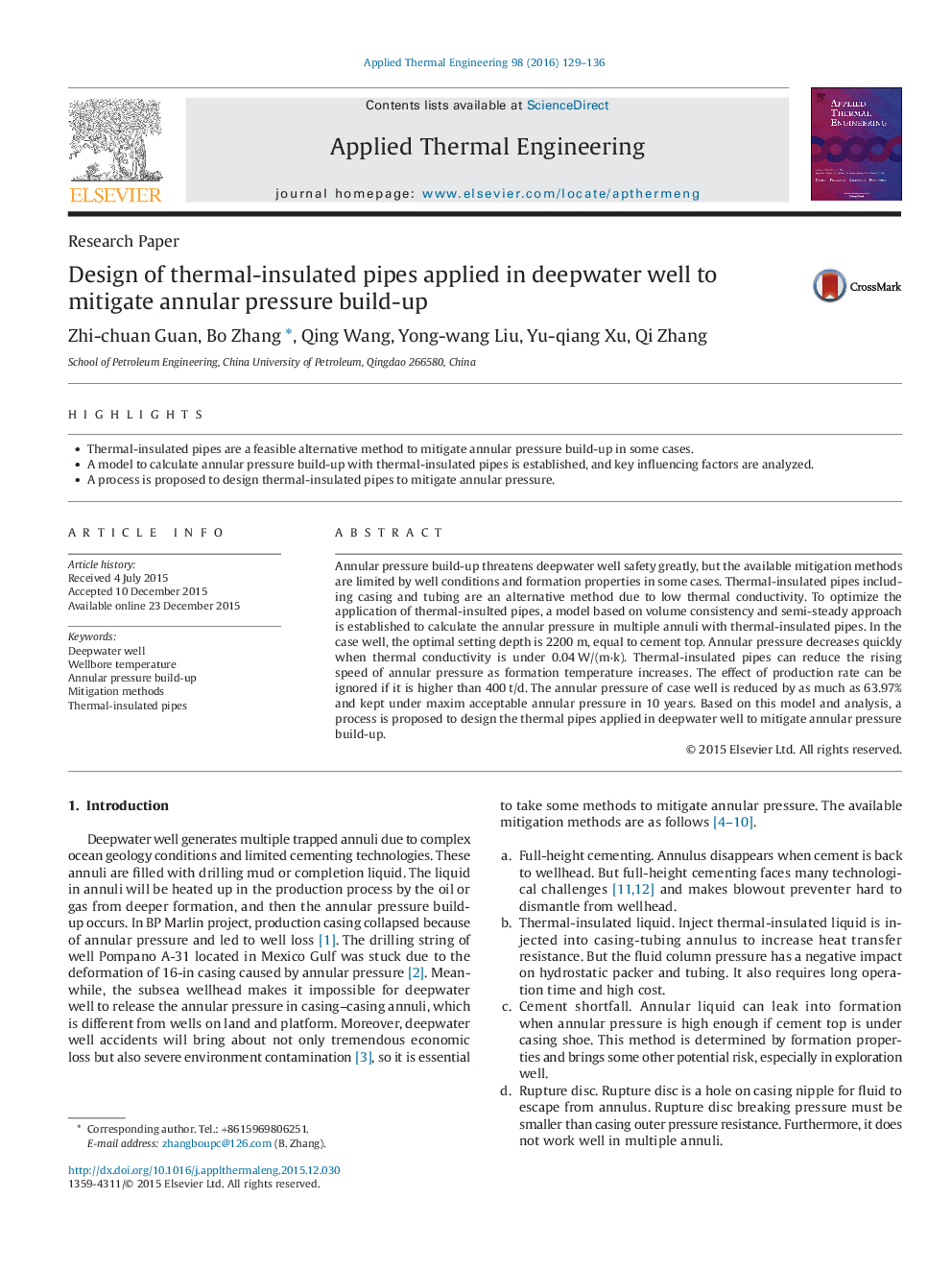| Article ID | Journal | Published Year | Pages | File Type |
|---|---|---|---|---|
| 7048307 | Applied Thermal Engineering | 2016 | 8 Pages |
Abstract
Annular pressure build-up threatens deepwater well safety greatly, but the available mitigation methods are limited by well conditions and formation properties in some cases. Thermal-insulated pipes including casing and tubing are an alternative method due to low thermal conductivity. To optimize the application of thermal-insulted pipes, a model based on volume consistency and semi-steady approach is established to calculate the annular pressure in multiple annuli with thermal-insulated pipes. In the case well, the optimal setting depth is 2200âm, equal to cement top. Annular pressure decreases quickly when thermal conductivity is under 0.04âW/(mâ
k). Thermal-insulated pipes can reduce the rising speed of annular pressure as formation temperature increases. The effect of production rate can be ignored if it is higher than 400ât/d. The annular pressure of case well is reduced by as much as 63.97% and kept under maxim acceptable annular pressure in 10 years. Based on this model and analysis, a process is proposed to design the thermal pipes applied in deepwater well to mitigate annular pressure build-up.
Related Topics
Physical Sciences and Engineering
Chemical Engineering
Fluid Flow and Transfer Processes
Authors
Zhi-chuan Guan, Bo Zhang, Qing Wang, Yong-wang Liu, Yu-qiang Xu, Qi Zhang,
